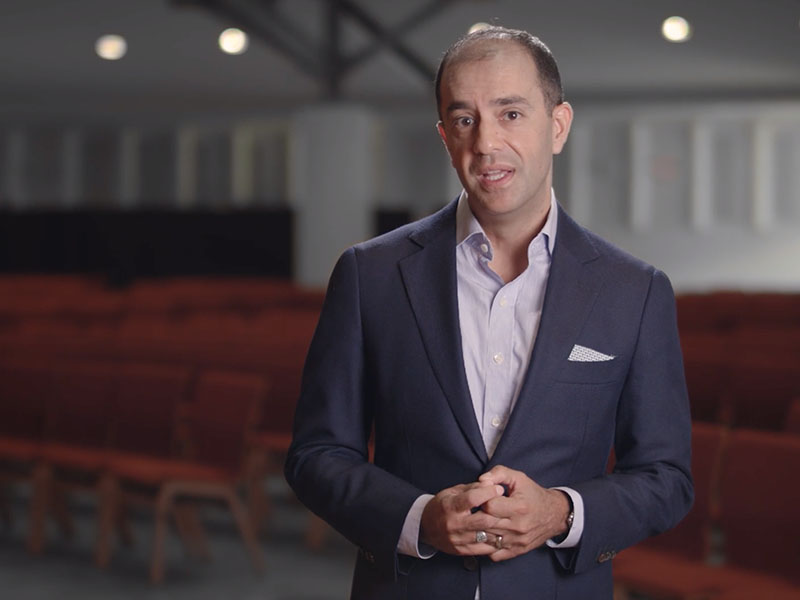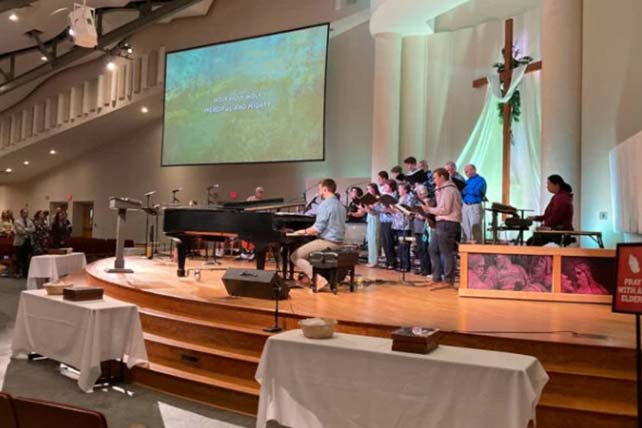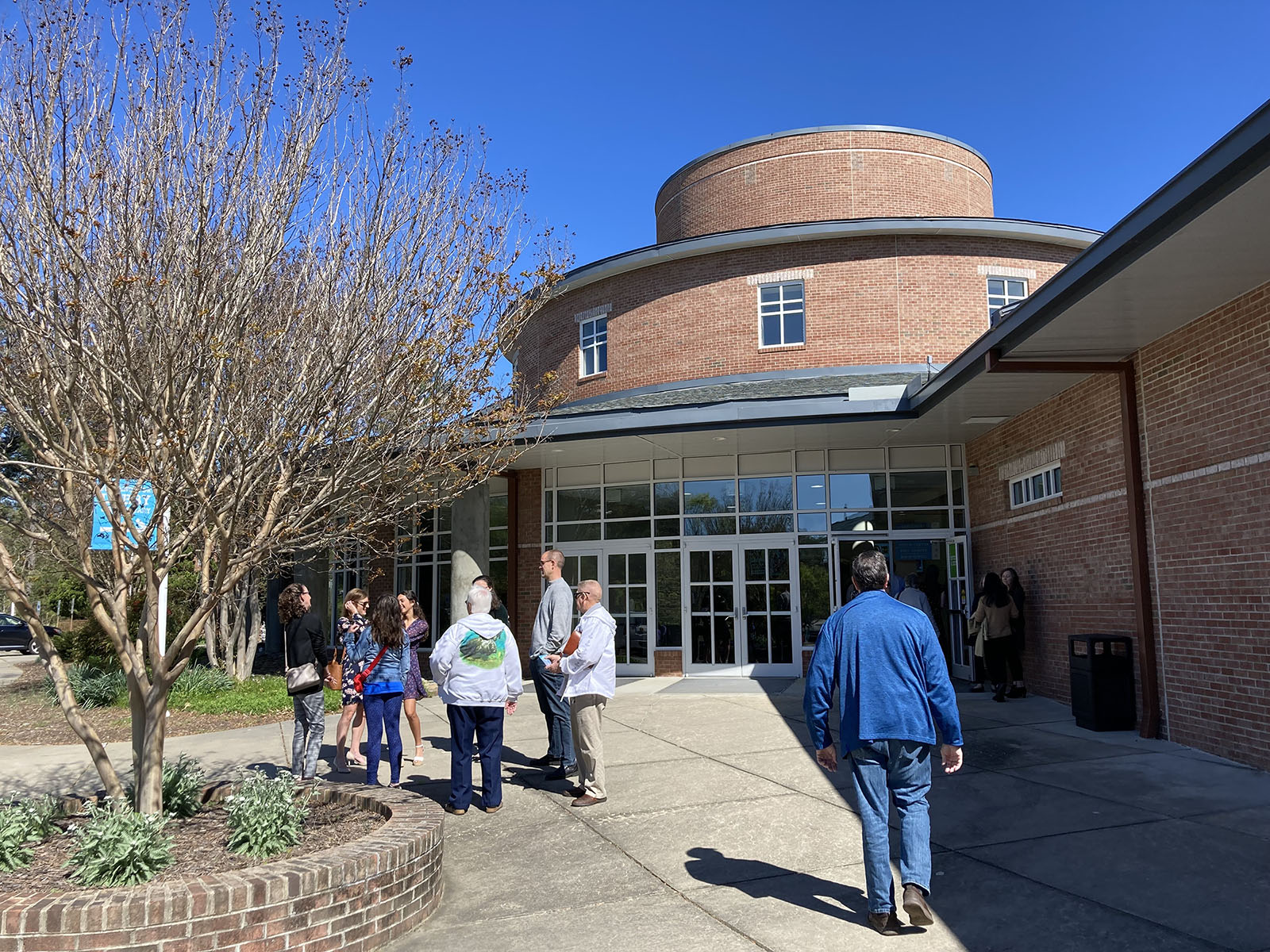“We do not feel it would be beneficial to God’s work in our church or the good of former members who are brothers and sisters in Christ to participate in your inquiry,” Thomas wrote in an email.
The Bible church follows the standard evangelical handbook. Services are a mix of praise songs and hymns followed by a weighty sermon. (Thomas is a graduate of Wheaton College and Gordon-Conwell Theological Seminary. His wife, Rebecca, is the daughter of former Wheaton College President Duane Litfin.)
On its website, the church declares it is “a multi-racial, multicultural, multi-generational” congregation, and that diversity is one of its five “DNA components.” But after Thomas’ arrival, members began noticing that programs engaging the wider community — whether blood drives or a children’s choir that drew from neighborhood children— quietly disappeared.
People mingle outside Chapel Hill Bible Church in Chapel Hill, North Carolina, on April 2, 2023. RNS photo by Yonat Shimron
Congregants began to worry that the withdrawal from the community signaled a waning commitment to inclusion. “Over the years, many programs that brought in people from the community were canceled by the pastors,” said Lisa McConnell, who resigned from the church in February. “We witnessed the church becoming more homogeneous.”
Former church members said they noticed church leadership began to value people of high net worth or social standing, who tended to be white. Adherence to doctrine (the church views the Bible as infallible; women cannot serve as elders or lead pastors) became more important than congregational care, they said.
When the church did address the killings of young unarmed Black people by police, especially in the wake of George Floyd’s killing, or the spike in anti-Asian hate crimes that began in 2021, it was fleeting and cautious.
In this, the Chapel Hill Bible Church was not unique. Michael Emerson, professor of sociology at the University of Illinois, said that church racial inclusion efforts suffered under President Donald Trump, who often made incendiary comments about immigrants and Blacks. Many church leaders faced a dilemma, Emerson said: “Do I repudiate it and risk losing many of my white members who may be the biggest donors and who pay my salary? Or do I say, ‘That’s politics, I’m not going to talk about it and try to just skirt the issue.”
When some elders approached the pastor to ask him to publicly respond to the Jan. 6 insurrection at the Capitol, Thomas drafted and made public his response.

Pastor Jay Thomas in an introductory video for Chapel Hill Bible Church. Video screen grab
“ … political affiliation, policy commitments, political parties, the details of the election, how to interpret the details and meaning of the raid on the Capitol, and the like are not so clear and straight-lined from Scripture that this is the moment to say A is right and B is wrong, or vice-versa,” he wrote.
The statement landed like a bomb.
“It was the kind of Trump language of ‘good people on both sides,’” said Walker Hicks, a white man whose three adopted children are Black. “It just provoked all sorts of distress and dismay and trauma among congregants of color and made them feel more alienated and confused and unsupported.” He and his family left the church in February.
The church dealt with the fallout by dedicating a few hearings to the subject of race, but the congregation was by then embroiled in another leadership crisis involving the executive pastor, who was alleged to have bullied and emotionally abused employees and members.
Two additional external reviews were undertaken, including one by GRACE, a leading nonprofit that investigates church abuses, to assess how leadership communicated with congregants.
When the 64-page GRACE review was released in November, church leaders, citing privacy, pared it down to an 18-page summary. That summary nonetheless included a section devoted to race, laying out numerous complaints from people of color without citing identifying information or quotes.


